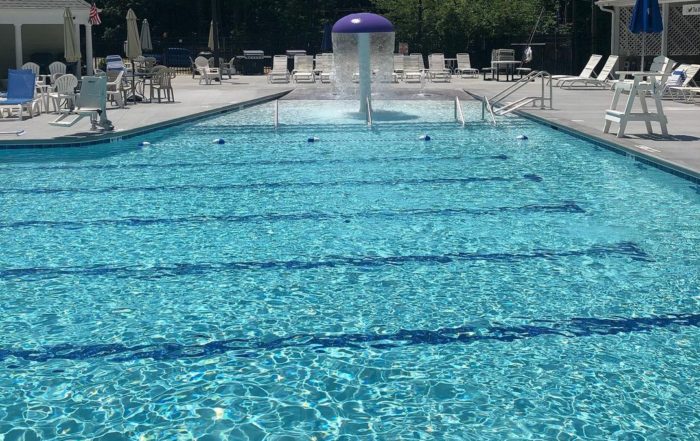CRYPTO IN PUBLIC POOLS NORTH CAROLINA

Cryptosporidium parvum is a protozoan that causes severe gastrointestinal illness that can lead to hospitalization. Crypto, as it is commonly called, is spread through fecal matter (i.e., swim diapers or sick swimmers) and presents a challenge because typical levels of chlorine that are safe to swim in do not destroy it. When an outbreak occurs, swimmers can become gravely ill, the pool must shut down until the Crypto in public pools North Carolina is eliminated, and the facility can be exposed to lawsuits to cover medical bills and other expenses.
Arizona and Ohio are not the only states to report problems with Crypto in public pools North Carolina this summer. Pennsylvania, Alabama, North Carolina and Minnesota have all reported outbreaks linked to pools, water parks and splash pads.
Increases in instances of Crypto in public pools North Carolina and across the nation has prompted the Centers for Disease Control and Prevention to recommend that all public recreational water facilities use a secondary sanitation system that will effectively destroy the bacteria. While UV systems are an option, they can be expensive to install and operate and if buildup occurs on the bulb, it doesn’t work effectively.
A more cost and energy-efficient option is a hydroxyl-based advanced oxidation system. Proven to rapidly destroy Crypto, these systems can help you better protect your swimmers.
2016 was a challenge for pools and water parks when it comes to Cryptosporidium, a highly contagious recreational water illness that causes serious sickness that can lead to hospitalization. Here is a look back at the Crypto problem in pools and water parks in 2016 and how pools and patrons can help prevent it.
What is Cryptosporidiosis?
Cryptosporidiosis is a disease caused by the parasite Cryptosporidium parvum. Crypto can live in the intestines of humans and is introduced to pool water through feces. This parasite is common in pools due to young children, swimmers who may have stomach illness, and poor hygiene. People will catch the illness if they drink or swallow contaminated water.
Why is Crypto a problem for pools?
Crypto can survive in chlorine-treated pools for more than 10 days because it is covered by an outer shell that protects it from chlorine. Additionally, there is no way to test water for the parasite. The only way to learn of a contaminated pool is if someone who swam there reports becoming sick. This means pools need to take precautions to prevent Crypto in public pools North Carolina from being introduced in the first place.
In 2016, there were a number of outbreaks in pools across the United States. Below is a list.
- Blountsville, Alabama. The Spring Valley Beach Water Park was closed for a week in August this year due to a presence of the parasite. The park was closed quickly preventing any widespread breakout from happening.
- Raleigh, North Carolina. At least 29 cases were reported by August in Wake County.
- Owatonna, Minnesota. Three different pools were involved in a small outbreak of Cryptosporidium. Extra chlorine was added to the waters and the pools opened back up the following day.
- Phoenix, Arizona. During early August, there was an outbreak declared in Maricopa County with 200 people reported infected. The illness was traced back to 20 pools in the area. Before 2016, there had been less than 200 reported cases combined in the three previous years.
- Columbus, Ohio. In late July there was a mass spread of Crypto that sickened nearly 1,000 people by fall in the Columbus area. This number exceeded the total combined number of cases in the past four years. This was the largest
How can pools protect swimmers from Crypto?
The Centers for Disease Control and Prevention recommends pools use a secondary sanitizer in addition to chlorine that effectively inactivates or destroys the parasite if it is introduced to the water.1 In addition, the CDC recommends educating staff and patrons in practices that prevent the spread of Crypto in public pools North Carolina and providing patrons with the following guidelines:
- Don’t pee or poop in the water.
- Take a shower before getting in the water.
- Wash hands with soap and water. Alcohol-based hand sanitizer isn’t effective.
- Take kids on frequent bathroom breaks
- Check swim diapers often and change them in a bathroom not by the pool
- Avoid swallowing any water and keep it out of your mouth.
Aqua Operators pool services is an experienced comprehensive pool management and service company specializing in commercial swimming pool facilities. Our company has been a leader in residential & commercial pool services to many recreational swimming pools in the immediate North Carolina area for more than 10 years.
With our extensive commercial pool management background, Aqua Operators pool services can also assist in the evaluation of service and repairs, prioritizing your needs for a long term business plan to eliminate expenditures for unnecessary and/or out of sequence repair and renovation work.For Pool Openings, Closings & Management and Staffing providing high quality pool lifeguards, pool management, pool maintenance, pool cleaning, pool repair, and pool designs in Raleigh, Durham, Cary, Apex, Fayetteville, Garner, Clayton Holly Springs , Angier, Fuquay Varina, Fayetteville, Dunn, Pinehurst, Southern Pines, Hope Mills NC. Aqua Operators can provide a list of references that attest to our community swimming pool service management the quality of our service.

